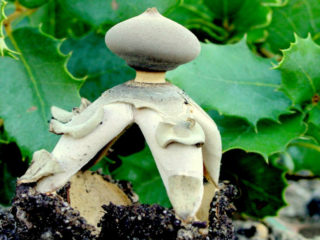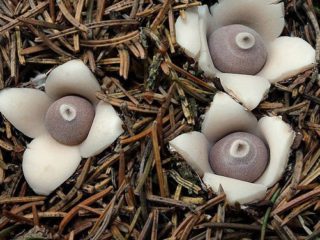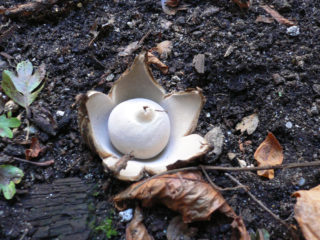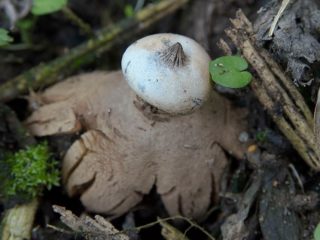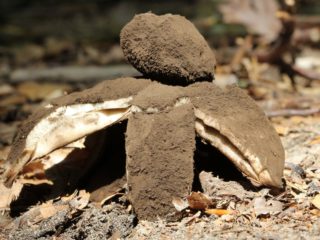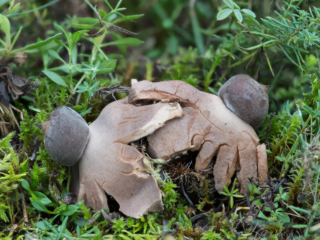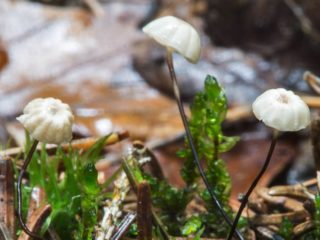Content
Geastrum minimum is a very interesting fruiting body, also called “earth stars”. Belongs to the Zvezdovikov family, genus Zvezdovik. The mushroom was first classified in 1822 by Lewis de Schweinitz. In 1851 it received the name Geastrum cesatii, assigned to it by Ludwig Rabenhorst.
Description of the little starfish
The small starwort begins to develop underground. It looks like miniature balls, hollow inside, ranging in size from 0.3 to 0.8 cm. Then the fruiting bodies on a low stalk break through the forest floor. Their color is white, gray-silver, creamy beige. The surface is smooth, matte.
The outer shell blooms with sharp petals, forming a star of 6-12 rays. The tips are not very strong at first, but then clearly curl down and inward.The space between the petals and the substrate is filled with cobweb-like mycelium. The diameter of the ripe ball is 0.8-3 cm; when opened, the dimensions reach 4.6 cm in diameter and 2-4 cm in height. As the petals age, they become covered with a network of cracks and become parchment-thin, translucent or brownish-withered.
Under the dense peridium there is a thin-walled sac filled with maturing spores. Its dimensions range from 0.5 to 1.1 cm. Its color is snow-silver, white-cream, beige, light purple or slightly ocher. Matte, velvety, covered with a white granular coating. Its apex has a small, papillary opening. The spore powder is ash-brown.
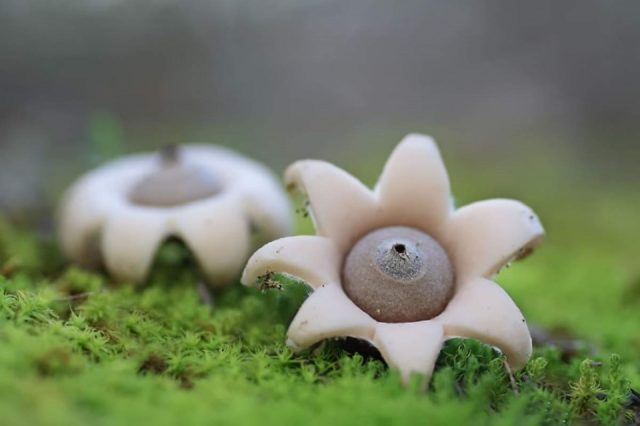
The fruiting bodies look like miniature wax flowers scattered across a moss clearing.
Where and how does it grow
The mushroom is quite rare. Distributed in Europe, in the British Isles. On the territory of Russia it is found in the central and western regions, the Far East and Siberia.
Loves sandy, lime-rich soils, thickets of grass and a thin layer of moss. It grows in forest edges, forest clearings, meadows and steppes. You can also see it along the roadsides. The mycelium bears fruit from mid-summer to late autumn.
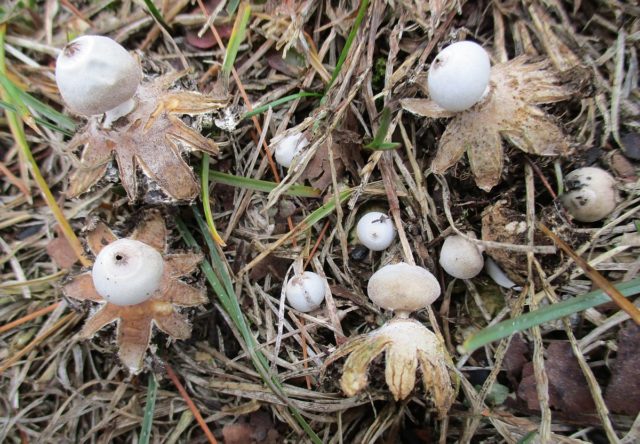
Grows in groups of many fruiting bodies of different ages
Is the mushroom edible or not?
Small star mushroom is classified as an inedible mushroom due to its low nutritional value. No toxicity data available.
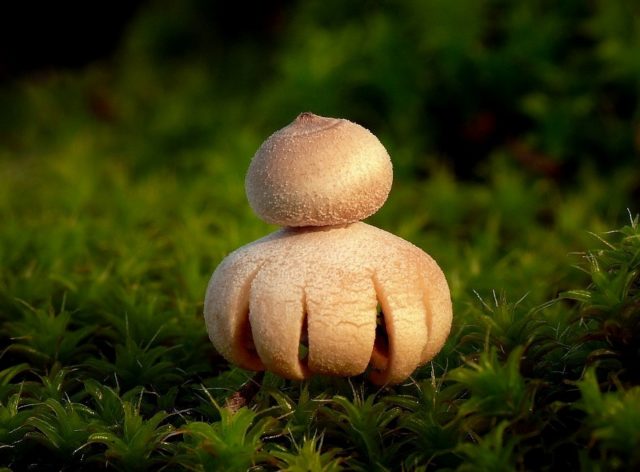
The mushroom is not suitable for food, but it looks impressive
Doubles and their differences
The small starfish is similar to some representatives of its own species. It differs from them in its miniature size and spore structure.
Fringed starwort. Inedible. It is distinguished by a darker color of the inner layer and a curved “proboscis” instead of a stomata.
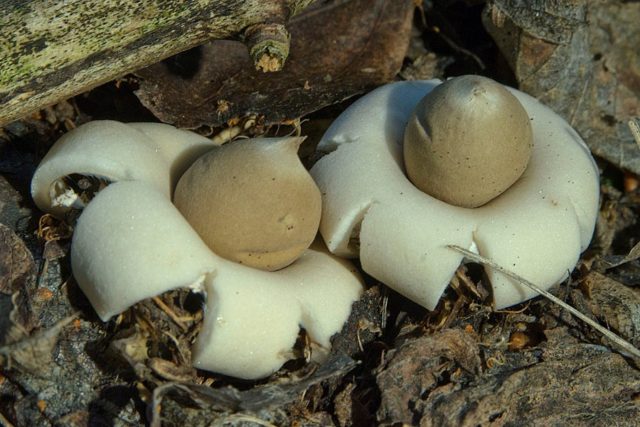
Settles on rotten fallen trees, in forest waste with an abundance of twigs and bark
Four-bladed star. Inedible. It has a gray-mealy, and then dirty-bluish color of the bag and icy-white petals, numbering 4-6 pieces.
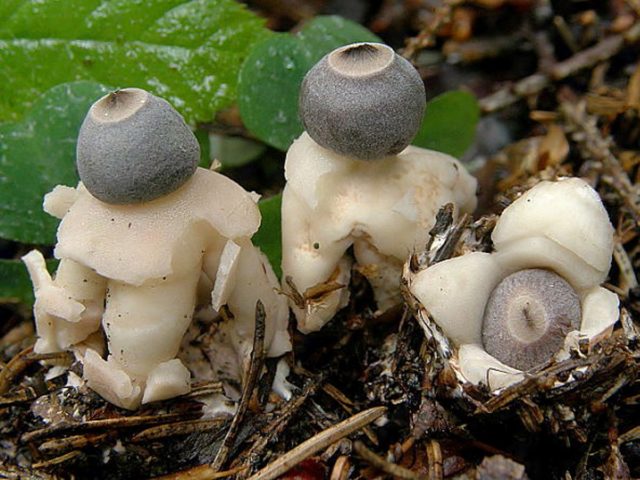
The stomata is quite clearly distinguished by its lighter color
Striped starwort. Inedible. They belong to saprotrophic fungi and participate in the processing of woody remains into fertile soil layer.
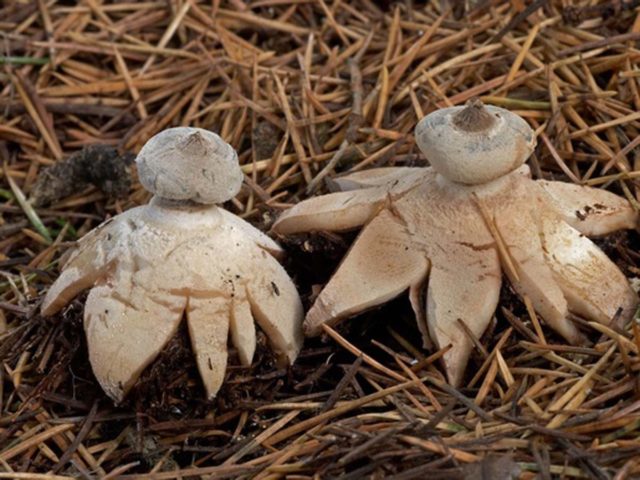
The stomata through which spores fly out has the appearance of a half-opened bud
Conclusion
Small star mushroom is a representative of a unique species of “star” mushrooms. At the beginning of its life, the fruiting body is underground, emerging to the surface by the time the spores ripen. It is extremely rare. Its habitat is the Eurasian continent and Great Britain. Grows in deciduous and coniferous forests, on alkaline soils. It has twins of its own species, from which it differs in small size.
